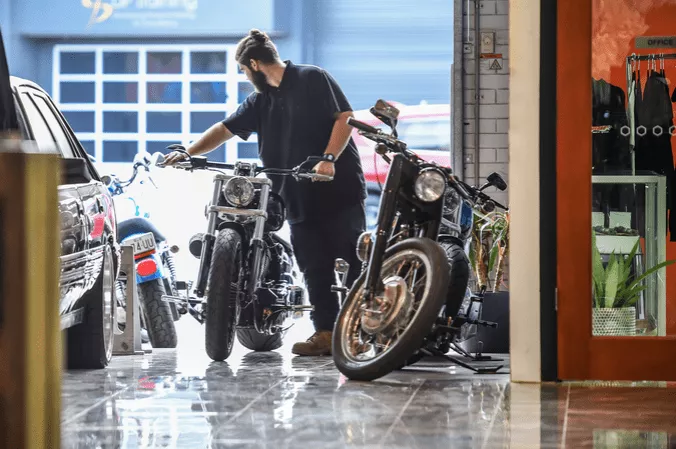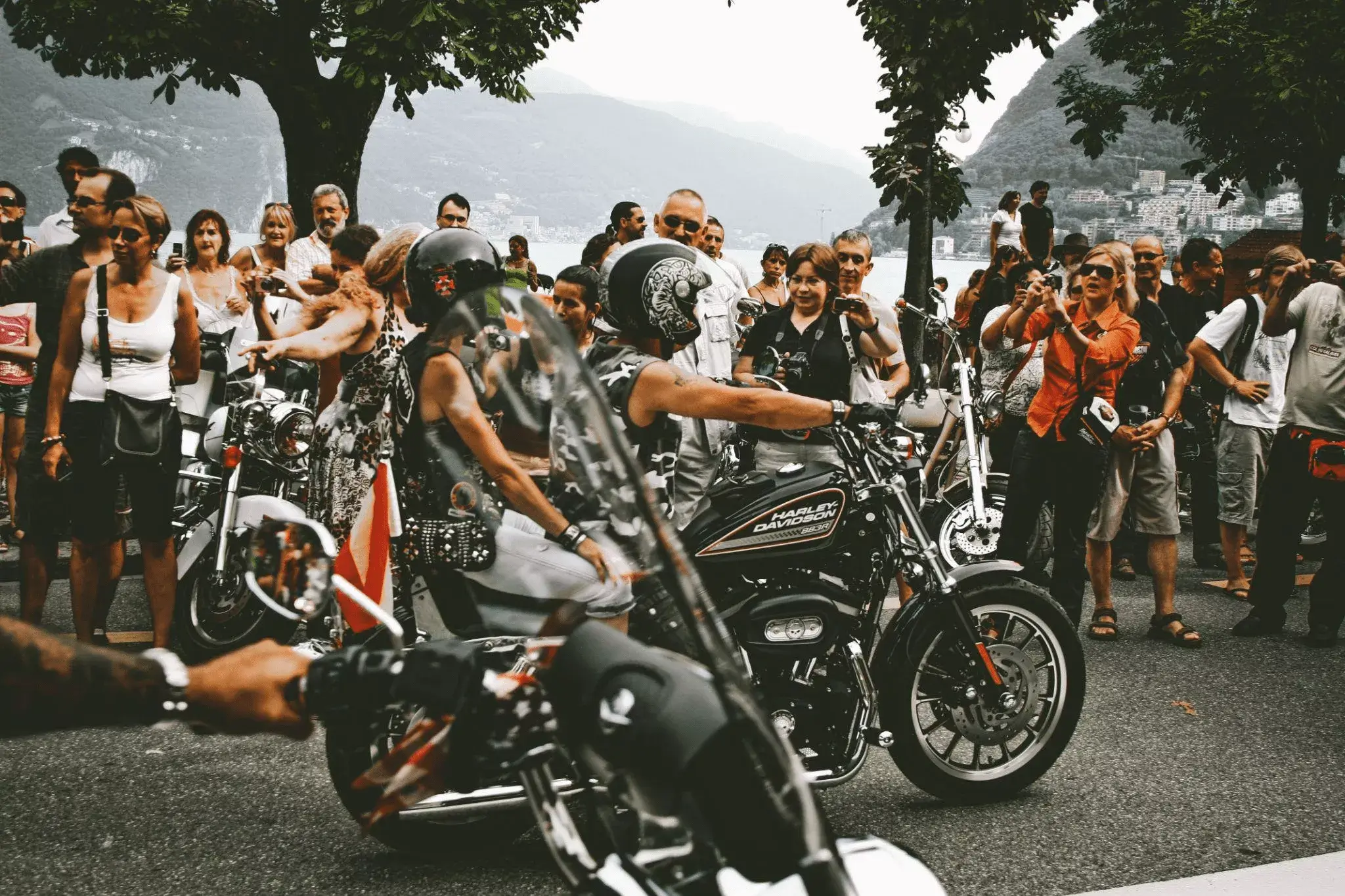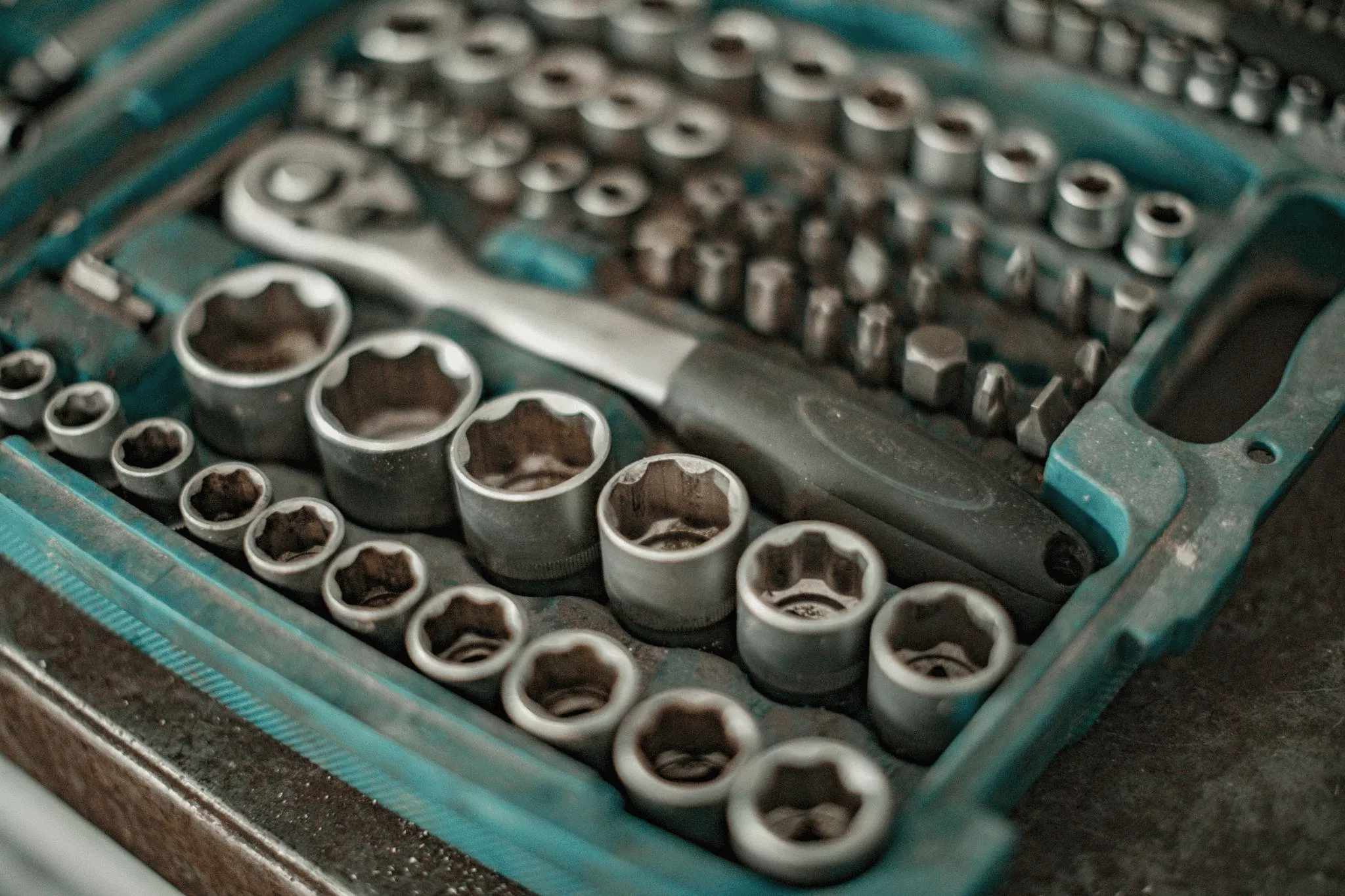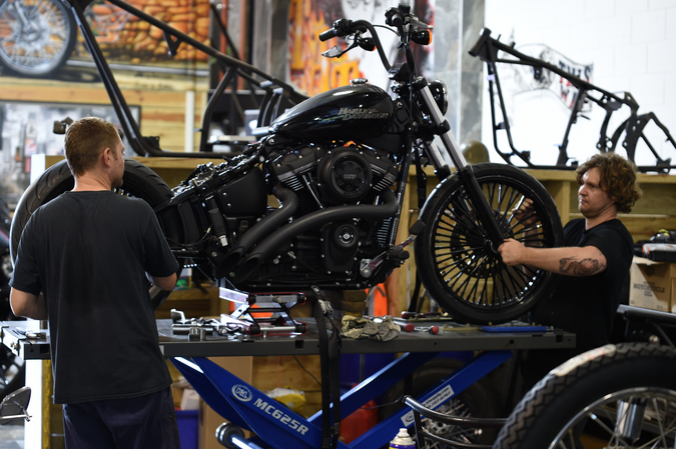As any biker knows, taking proper and regular care of your motorcycle can be extremely rewarding. However, after investing so much time, passion, and money into our bikes, putting them into someone else’s care can be daunting.
Whether you’re taking your bike in for its very first service, visiting a new mechanic, or returning to your trusted mechanic, it’s essential to have an open line of communication. Although mechanics are the professionals, you know your bike best, so the communication stream must go both ways.
While there aren’t necessarily any stupid questions, there are certainly some specific things you should be asking your motorcycle repair mechanic. Whether your bike needs a quick fix or a total repair, there are many technicalities and legal safety standards that even the most experienced biker can forget.
It’s always important to be on the same page as your mechanic. As a leading motorcycle servicer in Brisbane, we’re here to give you first-hand tips on what to ask your mechanic when you take your bike in for repairs.
Questions to Ask Your Mechanic
What engine oil should I use?
Engine oil is a relatively common topic of discussion and confusion regarding bikes. What’s the difference between one engine oil and another? Are you using the right oil? Is the oil protecting your engine efficiently?
These are all common and valid questions, and who better to ask than the pros behind the motor?
As the heart of the motorcycle, the engine is undoubtedly the most important element to maintain and repair when needed. This includes the type of oil you choose to run the engine with. Motorcycle engine oils can be synthetic, semi-synthetic, or mineral and all differ in price, range and usability.
The type of engine oil you choose ultimately depends on your bike and how the engine is built. Harley Davidson motorcycles have air-cooled engines with a roller bearing crankshaft, and the engine oil weight correlates with the air temperature. With this understanding, we recommend:
- Straight 50w engine oil for Harleys above 16 degrees all air-cooled.
- Up to a straight 70w engine oil for early Harleys in the middle of summer.
- Multigrade 20w50 engine oil for V-Rod Harleys, as they are water-cooled and run slipper bearing crankshaft.
After years of experience testing and trialling the various oils on the market, we heavily rely on Spectro oil. While your engine type has a significant influence on your choice of engine oil, to answer your question, “What engine oil should I use?” essentially any kind of Spectro oil that fits your bike’s specifications.

What tyre pressure should I run?
This question is extremely individual, and why it is so important to discuss it with your motorcycle repair mechanic.
Variables including rider weight, passengers, weather, road conditions, and terrain all influence the most optimal level of tyre pressure. However, we generally start at a comfortable 30psi for both the front and rear tyres as a baseline.
We adjust our recommendations to help you achieve your personal performance preferences. For example, if you were 80kg on a Harley Davidson and enjoyed biting harder on the corners, we recommend adjusting the tyres to run a 30psi in the rear and 28psi in the front.
However, as this is ultimately an entirely personal preference, the best way to navigate your desired tyre levels is to experiment with a couple of psi either way of the 30psi baseline to find the most comfortable spot for you. Discussing this with your mechanic will provide you with some guidance to find your ideal tyre pressure sooner.
What fuel should I run in my motorcycle?
Your fuel choice can ultimately decide the efficiency and the performance, two factors you likely don’t want to compromise on. Discussing fuel type with your mechanic can ensure your bike stays running efficiently without the regular need for repairs.
The primary factor determining the fuel type you should run in your motorcycle is pretty comprehensive, and that is the engine compression ratio.
Generally speaking, most engines are bound to suffer pre-ignition with any fuel type above 10.5:1 compression ratio without specific ignition timing tuning. With this understanding, we typically suggest running 98 Octane in everything because it is a cleaner fuel that works well in low compression engines.

How do I maintain my battery?
Battery maintenance is essential to ensure you don’t get caught out with a malfunctioning or flat battery mid-ride. There are many different ways to maintain your battery, generally focussing on regular bike maintenance and self battery checks and replacements.
However, there are some specific accessories you can invest in for your bike’s battery that your mechanic can guide you through choosing the most suitable one.
If you don’t regularly ride or start your motorcycle at least once a week, a trickle charger is an excellent investment. Fitting a simple connection to your bike will enable you to plug the trickle charger in when it is stored and maintain your battery. These devices are a cost-effective and straightforward way to preserve the longevity of your battery life and avoid costly replacements. They typically come in genuine and C-Tek varieties that your mechanic can help you decipher between.

Is the repair worth the cost, or should I just replace it?
This question depends on your bike’s issue and your bike build goals. Your mechanic cannot tell you ‘yes or no’. After all, this is your decision. They will be able to layout the pros, cons, and facts of the situation and help guide you towards making your own, well-informed decision.
Asking this question is also a great way to open up the conversation between you and your mechanic and understand both of your perspectives.
Is there anything I should know to avoid the problem in the future?
While repairs and maintenance are always bound to be required, there are always things you can do to prevent their frequency.
We can fall into habits when it comes to how we use and care for our bikes, so it can be extremely useful to get an external and professional perspective on what you’re doing. This includes knowing how your bike broke down and why it happened can help you avoid making these mistakes again.
Ultimately, everyone’s bike needs are different, and you must have these conversations yourself with your mechanic. With over 47 years of experience working closely with motorcycles, everyone at Taverner Motorsports prides themselves on not making the same mistake twice.
Ask the questions now to save yourself the stress and money later. Whether this is your first rodeo or you live and breathe bikes, you can find more helpful information in our newsroom. Or, contact us today to request a quote.
